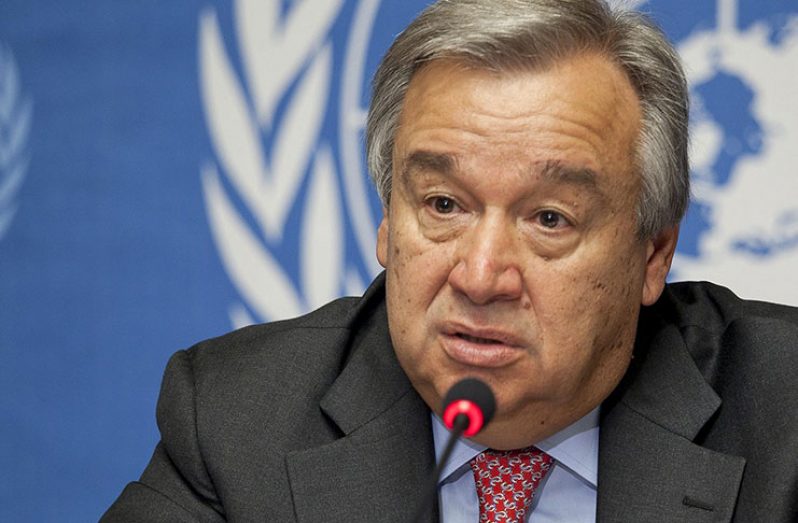— says UN secretary-general in report on impact of COVID-19 on children
OVER 1.5 billion children and youth, due to the global crisis, are being affected in key areas of education, food, safety and health and hundreds of thousands of them could die as a result of the looming global recession.
This was the grim reality put forward by the United Nations (UN) Secretary- General António Guterres at the launching of the UN Policy Brief, ‘The Impact of COVID-19 on Children’, on Friday.
Guterres said while children have been largely spared from the most severe symptoms of the disease, the poorest and most vulnerable members of society are being hardest hit, both by the pandemic and the response.
“Almost all students are now out of school. Some schools are offering distance learning, but this is not available to all. Children in countries with slow and expensive internet services are severely disadvantaged. Second, food. A staggering 310 million schoolchildren – nearly half of the world’s total – rely on school for a regular source of daily nutrition. Even before COVID-19, the world was facing unacceptable rates of childhood malnutrition and stunting,” he pointed out.
He urged governments to act on these findings to counter their potential effects by prioritising education for all children, providing economic assistance to low-income families, and minimising disruptions to social and healthcare services for children.
As regards safety, the secretary-general said more children are put at risk by being out of schools, while families’ stress levels are rising. As a result, many more children are now victims and witnesses of domestic violence and abuse.
Guterres also noted the concern of the danger that girls will drop out of school, leading to an increase in teenage pregnancies. Added to this is the threat of online dangers such as sexual exploitation and grooming of children who are now using the internet more often.
“A lack of face-to-face contact with friends and partners may lead to heightened risk-taking such as sending sexualised images. And increased and unstructured time online may expose children to potentially harmful and violent content, as well as greater risk of cyberbullying,” he said.
He said governments and parents all have a role to play in keeping their children safe and called on social media companies to act on their special responsibility to protect the vulnerable.
To the current greatest challenge of health, Guterres alerted that polio vaccination campaigns have been suspended, measles immunisation campaigns have stopped in at least 23 countries and health services have become overwhelmed, leaving sick children with less access to care.
Meanwhile, reduced household income is forcing poor families to cut back on essential health and food expenditures, which in turn affects children, pregnant women and breastfeeding mothers.
“With the global recession gathering pace, there could be hundreds of thousands additional child deaths in 2020,” he stated regrettably, urging:
“Its conclusion is clear. We must act now on each of these threats to our children. Leaders must do everything in their power to cushion the impact of the pandemic.”



.jpg)








